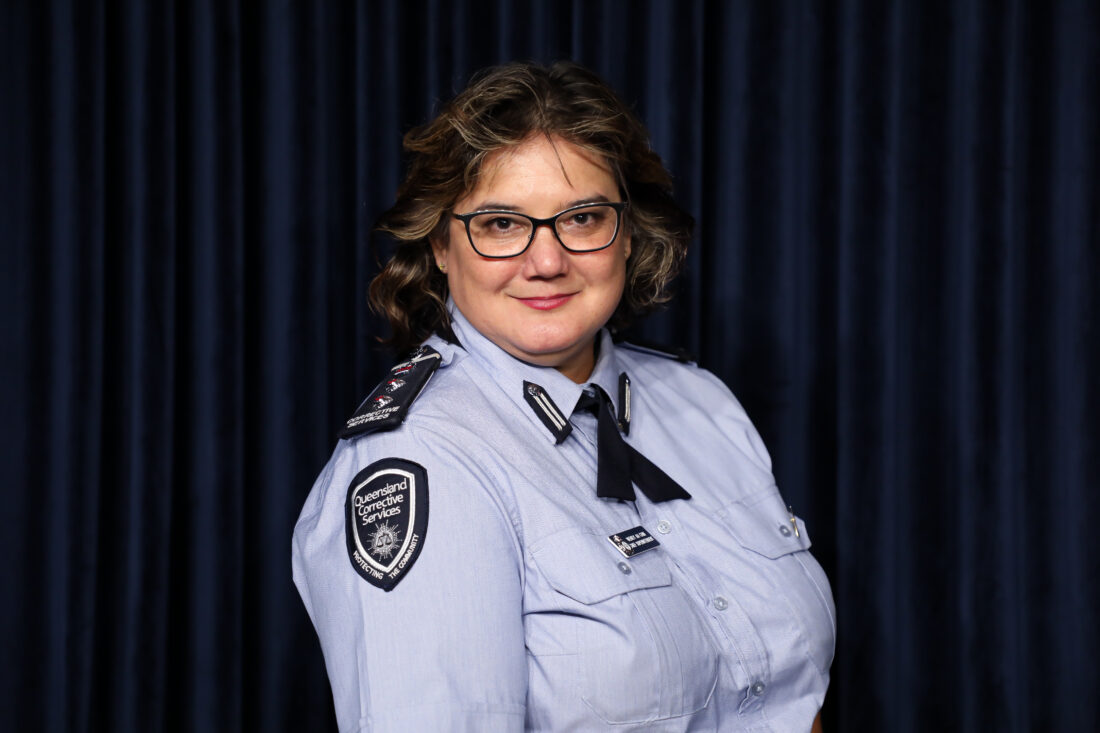
Op-Ed: Breaking incarceration cycles for lasting generational change
Queensland Corrective Services Chief Superintendent for First Nations and Cultural Capability, Wendy Ah Chin, proud Waanyi woman from North Queensland
As Queensland maps its course on the Path to Treaty, Queensland Corrective Services recognises its important role in addressing the over-representation of First Nations people in custody and under supervision in the community.
One-third of people in custody in Queensland identify as First Nations* and we are in a unique position to influence the lives not only of those in our custody and care but make lasting generational change.
While QCS can’t influence who comes into our system, we can work with them to make lasting positive changes which can prevent reoffending. This can have generational benefits, as we know the largest indicator of whether someone ends up in custody is if they have a parent who is incarcerated.
In fact, a child who has a parent who spends time in prison is nine times more likely to end up in custody themselves as an adult. To break this cycle of disadvantage in First Nations people, we need to provide culturally appropriate services.
This takes many forms – including ensuring all officers are trained and supported to engage with individuals in a culturally appropriate manner and encouraging ongoing engagement and connection to family, culture and country.
I am QCS’s first-ever Chief Superintendent for First Nations and Cultural Capability, in a newly created role that demonstrates the agency’s commitment to learn from the past and take genuine steps to engage with our stakeholders and community to improve the future for all Queenslanders.
I have the opportunity to be a part of the whole-of-government approach and build stakeholder partnerships to shape and influence Queensland’s Aboriginal and Torres Strait Islander justice agenda, including developing our Reframing our Relationship Plan.
Top of my priority list is to understand what our “truth-telling” journey looks like over the coming months and years. Recognising, respecting, and valuing Aboriginal and Torres Strait Islander cultures and lived experiences is fundamental to improving our services, as is acknowledging where things may not have been done well and learning from that. As a Maya Angelou once said: ‘When we know better, we do better’.
Another priority is to build QCS’s Murridhagun Cultural Centre into a Centre of Excellence for Cultural Capability, where all officers can learn about cultural protocols and receive awareness training, and where consistent processes, policies and advice on First Nations matters are embedded. I strongly believe building the capability of our staff to provide culturally safe services will contribute significantly to reducing reoffending and the over-representation of Aboriginal and Torres Strait Islander people in our care.
We work closely with Elders across the State to provide prisoners with opportunities to have a voice and stay connected to their mob. Over the past 12 months significant progress has been made in this area with the number of Cultural Liaison Officers in the agency doubling to more than 60. These officers act as an agent of change throughout the organisation to address cultural issues related to offending behavior and aid rehabilitation. They are forging a path where we embed culturally responsive systems and services into our policies to achieve better outcomes for First Nations Prisoners, and better outcomes for communities.
Achieving real change requires genuine collaboration and I am ready to bring my extensive experience from various jurisdictions predominantly in the Indigenous health portfolio, a lessons-learnt approach and use evidence of what works to help QCS achieve sustainable and generational reform for First Nations people in our care.
This NAIDOC week I proudly stand with QCS as a proud Waanyi woman from North Queensland, and I look forward to making a positive change that will benefit future generations.
ENDS
*In Queensland, 237,000 or 4.6% of the population as a whole identify as First Nations.
